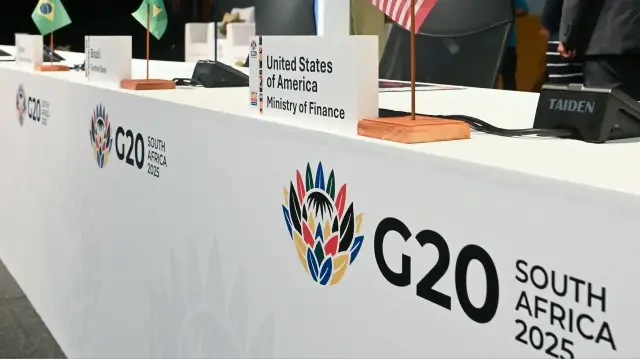The G20 summit and the global economy

The G20 platform was established in 1999, bringing together advanced and emerging economies after the 1997 Asian and 1998 Russian economic crises to coordinate a global response to potential future crises.This formation aims to strengthen the representation of economies and ensure stability in the global economic system.
While these summits initially took place at the level of Finance Ministers and Central Bank Governors, they have been held at the level of national leaders since the 2008 economic crisis.
In 2009 and 2010, G20 summits were held twice a year, and afterward they began to be held annually.
G20 COUNTRIES
The G20 was originally known by this name because it consisted of 19 countries and the European Union (EU).
However, today, with the African Union participating in the summits, the G20 has effectively become a 21-member platform.
The countries represented in the G20 are as follows: the United States, Germany, Argentina, Australia, the United Kingdom, Brazil, China, Indonesia, France, South Africa, India, Italy, Japan, Canada, the Republic of Korea, Mexico, the Russian Federation, Saudi Arabia, and Türkiye.
Alongside these countries, the European Union and the African Union are also part of the G20.
2025 G20 SUMMIT
With this year’s summit held for the first time in an African member country—the Republic of South Africa—under the theme “Solidarity, Equality, Sustainability,” every G20 country has now hosted a summit.
The 2026 G20 summit will take place in the United States, the country that hosted the first-ever G-20 summit.
WHY HAS THE G20 BECOME IMPORTANT?
The countries represented in the G20 include both advanced economies and developing, rising economies.
Because member states represent different continents around the world, this platform has become even more significant.
As G20 countries account for about 85% of the global economy, around 75% of global trade, and roughly two-thirds of the world’s population, the G20 is increasingly becoming a major actor in the international economic arena.
By bringing together the world’s highest-GDP economies, the G20 has the potential to provide rapid and coordinated crisis management.
Due to its growing importance, the G20 has become a key global forum that promotes international cooperation not only on financial matters but also on issues such as climate change, health, digitalization, and development.
Most importantly, the G20 platform has become a vital venue where the problems of many poor and middle-income countries—whose voices often go unheard—can be raised.
Advertisement








Comments you share on our site are a valuable resource for other users. Please be respectful of different opinions and other users. Avoid using rude, aggressive, derogatory, or discriminatory language.